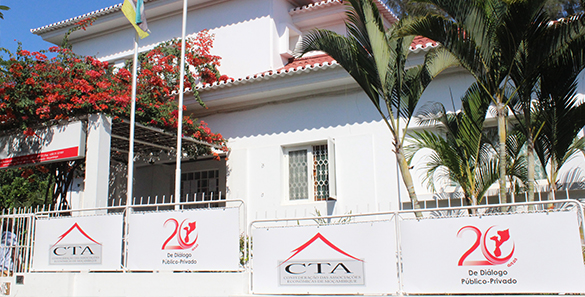Mozambique: Chapo wants to "accelerate reforms" through public-private dialogue
Mozambique: High tax burden threatens firms’ profits, viability – business association

File photo: CTA
A study by the Mozambique’s Confederation of Economic Associations (CTA), the country’s largest business organisation, argues that a high tax burden threatens to wipe out company profits, undermining business viability and competitiveness.
“The results show that the current tax burden on Mozambican companies is 36.1 percent and is above that which exists in most developing countries,” states the study, titled ‘Tax Burden in the Business Sector in Mozambique’.
According to the analysis, the burden of taxes and duties threatens to annul company profits, if the current upward trend continues and reaches 43% of the businesses’ results.
This increase will, in turn, put at risk state revenues, by undermining activity and competitiveness, the study argues.
It also criticises the narrowing of the tax base in Mozambique, noting that collection is concentrated on only 19.3% of taxable entities, including individuals and companies, with the rest having no income tax obligations.
The CTA believes that there has been a “federalisation” in the structure of taxes and fees in Mozambique, with a proliferation of entities creating levies independently, without authorisation from supervisory bodies.
“This conclusion is substantiated by estimates that show that of total tax contributions, the industrial sector channels 59.4 percent to the Tax Authority and the remaining 49.6 percent to other state entities,” the study notes.
The tax policy in force in the country, it continues, is ever more complex and difficult to monitor, harming the private sector.
According to the analysis, companies are also forced to deal with situations that amount to double taxation, as happens in the transport sector, where there are two main taxes: one on road traffic and another on vehicles.
CTA advocates a pause for reflection on the introduction of new taxes and duties, given the current spiralling tax burden on firms.
Tax policy, it argues, should be centralised in the Ministry of Economy and Finance, avoiding the dispersion of levies among various entities.
A review of the principles of value-added tax (VAT) deduction is also recommended as a way of reducing the burden.












Leave a Reply
Be the First to Comment!
You must be logged in to post a comment.
You must be logged in to post a comment.